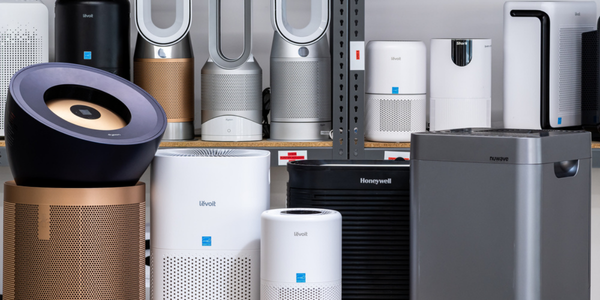Are your allergies turning your home into a battleground? Whether it’s spring pollen, pet dander, or dust mites that trigger sneezing fits and itchy eyes, you’re not alone—and 2025 brings an impressive lineup of air purifiers designed to help you breathe easier. With smart tech, HEPA precision, and whisper-quiet performance, the best models this year do more than just filter air—they transform your environment.
In this guide, we break down the top air purifiers for allergies in 2025, complete with in-depth reviews, real-world examples, and tips for choosing the right one for your needs. Let’s clear the air.
Why Air Purifiers Are Crucial for Allergy Sufferers
Allergies are more than a nuisance—they affect sleep, concentration, and overall well-being. Common indoor allergens include:
-
Pollen
-
Pet dander
-
Dust mites
-
Mold spores
-
Volatile Organic Compounds (VOCs) from cleaning products or paints
An effective air purifier with True HEPA filtration and activated carbon filters can drastically reduce these allergens, creating a cleaner, safer living space.
What’s New in 2025? Air Purifier Trends to Know
2025 marks a leap in air purification tech. Here’s what’s trending:
-
AI-enhanced sensors for smarter air quality adjustments
-
Hybrid filtration systems combining HEPA, UV-C, and ionizers
-
Eco-friendly designs with energy-efficient certifications
-
Mobile integration via apps for remote control and alerts
These advancements make air purifiers not just smarter, but also more effective for tackling seasonal and year-round allergies.
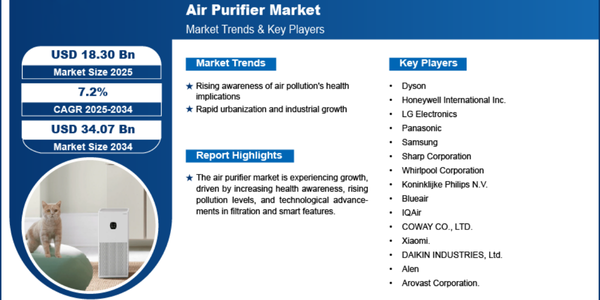
Best Overall: Dyson Purifier Cool Formaldehyde TP09
Why It Stands Out
The Dyson TP09 blends elegance and power. It’s engineered to capture 99.97% of particles as small as 0.3 microns—perfect for pollen and pet dander. Plus, it breaks down formaldehyde, a common indoor pollutant, making it ideal for modern homes.
Key Features:
-
HEPA H13 sealed system
-
LCD screen with air quality metrics
-
Oscillates 350° to purify a whole room
-
Smart controls via Dyson app or Alexa
Best for: Allergy sufferers who want aesthetics, performance, and smart features in one sleek package.
Best for Bedrooms: Levoit Core 600S Smart True HEPA
Why It’s Great for Sleep
Ultra-quiet and efficient, the Levoit Core 600S is a top pick for allergy sufferers who value a silent night. Its Sleep Mode dims display lights and drops noise levels below 26 dB.
Key Features:
-
True HEPA 3-stage filtration
-
Smart sensor with Auto Mode
-
Covers up to 635 sq. ft.
-
Compatible with Alexa and Google Assistant
Bonus: It’s ozone-free—perfect if you’re sensitive to ionizers.
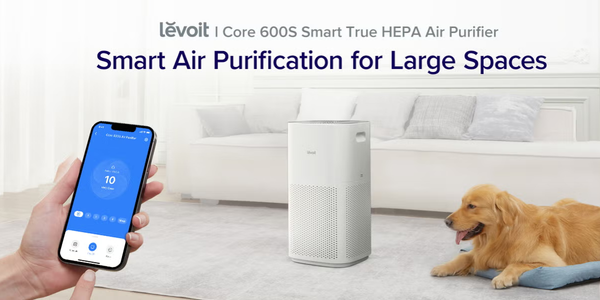
Best for Pet Owners: Alen BreatheSmart 75i Pet Edition
Tailored for Pet Allergies
This purifier tackles the unique challenge of airborne pet allergens. It features a HEPA-Pure filter with extra odor control—ideal for households with cats or dogs.
Why You’ll Love It:
-
Up to 1,300 sq. ft. coverage
-
Laser sensor for real-time air quality
-
WhisperMax technology for silent operation
-
Customizable color panels
Testimonial Highlight: “After just a week, my daughter’s asthma attacks decreased, and our home smells fresher—even with two golden retrievers.” – Marissa T.
Best Budget Option: Winix 5500-2 Air Purifier
High Performance, Low Price
Don’t let the price fool you. This under-$200 purifier offers true HEPA filtration, plasma wave technology, and a washable carbon filter—a budget-friendly powerhouse.
Pros:
-
Great for medium to large rooms
-
Smart sensors adjust fan speed automatically
-
No ozone output despite ionization
Best for: Cost-conscious users who want reliable allergy relief without sacrificing features.
Best for Mold and Dust: Blueair HealthProtect 7470i
Mold? Dust mites? No Problem.
This purifier offers 24/7 protection—even on standby—thanks to GermShield™ technology, which proactively kills bacteria and mold spores.
Standout Specs:
-
HEPASilent Ultra™ filtration
-
Real-time pollutant tracking
-
Voice control + app integration
-
360° air intake
Best for: Allergy sufferers in humid climates or older homes.
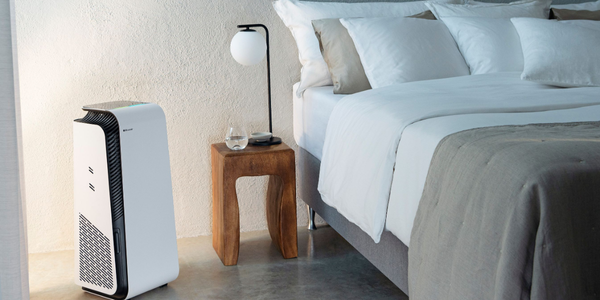
Quick Comparison Table
| Model | Best For | Room Size | Filter Type | Smart Features |
|---|---|---|---|---|
| Dyson TP09 | Overall | Up to 800 sq. ft. | HEPA + Formaldehyde | Yes |
| Levoit Core 600S | Bedroom use | 635 sq. ft. | HEPA | Yes |
| Alen 75i Pet | Pet allergies | 1300 sq. ft. | HEPA-Pure + Carbon | Yes |
| Winix 5500-2 | Budget | 360 sq. ft. | HEPA + PlasmaWave | Basic |
| Blueair 7470i | Mold & Dust | 418 sq. ft. | HEPA Silent Ultra | Yes |
How to Choose the Right Air Purifier for Allergies
1. Check for True HEPA Certification
Not all filters are created equal. Look for “True HEPA,” which captures 99.97% of particles ≥0.3 microns.
2. Match Size to Room Coverage
Bigger isn’t always better. Choose a model with CADR ratings and square footage that matches your room size.
3. Consider Additional Filtration Layers
Activated carbon is crucial for odors and VOCs, while UV or plasma tech can help neutralize microbes and mold.
4. Noise and Energy Ratings
If it’s too noisy to run overnight, it’s less effective. Seek models with quiet modes and Energy Star certifications.
5. Smart Features vs Simplicity
Do you want app controls, scheduling, and voice activation? Or do you prefer plug-and-play functionality? Decide what suits your lifestyle.
FAQs: Air Purifiers & Allergies
Q: Do air purifiers really help with seasonal allergies?
A: Yes. By filtering out pollen and other allergens, air purifiers can significantly reduce allergic reactions indoors.
Q: How often should I replace HEPA filters?
A: Typically every 6–12 months, depending on use and manufacturer guidelines.
Q: Can I run my air purifier all day?
A: Absolutely. In fact, for allergy sufferers, continuous operation (especially in bedrooms) is recommended.
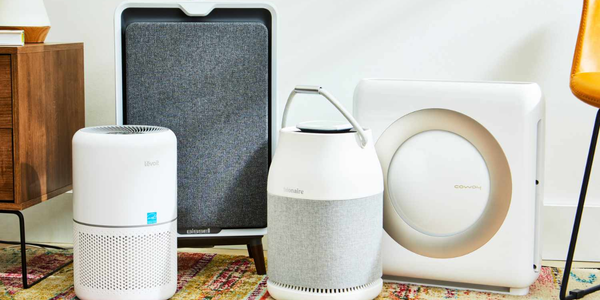
Final Thoughts: Clear the Air in 2025
Allergies can make everyday life uncomfortable, but the right air purifier can be a game changer. Whether you want top-tier performance, a whisper-quiet companion for your bedroom, or a pet dander eliminator, there’s a 2025 model ready to transform your indoor environment.
💬 We’d Love to Hear from You!
Which of these air purifiers caught your eye? Have you used any of them? Drop your thoughts in the comments below—or check out our full guide to HEPA filters and top tips for allergy-proofing your home!
